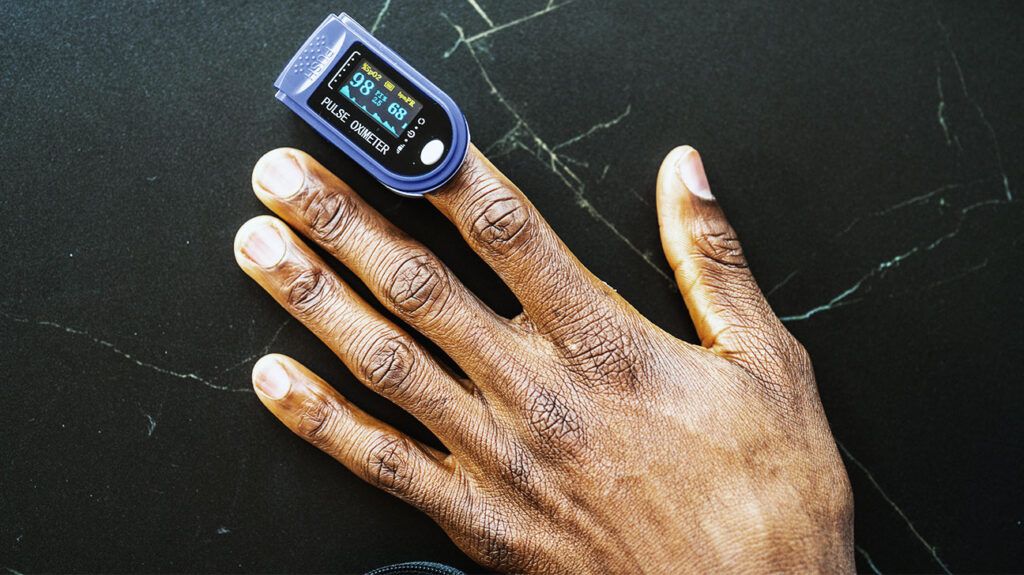High blood pressure may cause no symptoms. However, some people experience dizziness and other issues.
Dizziness involves a sensation of spinning, lightheadedness, and unsteadiness. Individuals may feel as though they may faint, lose their balance, or fall. It is not a specific medical diagnosis in itself but rather a symptom that can result from various underlying causes, including high blood pressure.
High blood pressure, which is known as hypertension, means there is an elevated force of the blood against the walls of arteries that exceeds typical ranges. This increased force can pose health risks.
This article looks at the relationship between dizziness and high blood pressure. It also discusses when to consult a doctor and how to manage the condition.

High blood pressure, or hypertension, can cause dizziness. A
Blood pressure measurements are in mm Hg. The top number, systolic, refers to the pressure in the arteries when the heart beats, while the lower number, diastolic, indicates the pressure as the heart rests between beats.
Often, high blood pressure has no symptoms, which is why people refer to it as
- dizziness
- headaches
- chest pain
- heart palpitations
- nausea and vomiting
- facial flushing
- blood spots in the eyes
Because many people have no physical symptoms to alert them of high blood pressure, it is best to measure blood pressure regularly at home. A typical blood pressure should be 120/80 mm Hg or lower.
Anyone experiencing sudden dizziness, severe headache, chest pain, shortness of breath, or visual issues should call 911 for emergency medical treatment. They
A hypertensive crisis is a sudden, significant increase in blood pressure that can lead to a heart attack, stroke, or other life threatening problems.
High blood pressure
Furthermore, some blood pressure medications
It is also important to note that high blood pressure is a significant risk factor for stroke. A stroke can affect the brain’s balance control, resulting in dizziness. Anyone with sudden dizziness or loss of balance and coordination should seek urgent medical attention.
Doctors diagnose high blood pressure by taking blood pressure measurements with a device known as a sphygmomanometer. It comprises an inflatable cuff, a pressure gauge, and a stethoscope.
The doctor wraps the cuff around the person’s upper arm and inflates it, temporarily stopping blood flow through the brachial artery. They then release the pressure in the cuff while listening to the sound of blood with the stethoscope as it flows through the artery. This provides the measurements of systolic and diastolic blood pressure:
The categories of blood pressure
- Normal: This is where systolic pressure is below 120 mm Hg and diastolic pressure is below 80 mm Hg.
- Elevated: This is where systolic pressure is 120–129 mm Hg and diastolic pressure is less than 80 mm Hg.
- Hypertension stage 1: This is where systolic pressure is 130–139 mm Hg or diastolic pressure is 80–89 mm Hg.
- Hypertension stage 2: This is where systolic pressure is 140 mm Hg or higher or diastolic pressure is 90 mm Hg or higher.
- Hypertensive crisis: This is where systolic pressure is over 180 mm Hg, diastolic pressure is over 120 mm Hg, or both. Immediate medical attention is necessary.
Healthcare professionals may perform multiple blood pressure measurements over separate visits to establish an accurate diagnosis.
Treatment strategies for high blood pressure include lifestyle modifications and medication, depending on the severity of the condition.
Lifestyle changes may include:
- making dietary adjustments
- reducing salt intake
- limiting alcohol intake
- avoiding smoke and smoking, if applicable
- taking regular exercise
- managing weight
- reducing stress
Doctors may also prescribe
- angiotensin converting enzyme inhibitors
- alpha-2 receptor agonists
- alpha-blockers
- angiotensin 2 receptor blockers
- beta-blockers
- calcium channel blockers
- diuretics
- vasodilators
Long-term management of high blood pressure is essential to prevent complications. People should monitor their blood pressure regularly, adhere to prescribed medications, and commit to a heart-healthy lifestyle to help ensure they can control their hypertension effectively.
They also need to educate themselves about high blood pressure and appropriate management and stay informed about the latest guidelines and research.
Preventing high blood pressure involves adopting a similar heart-healthy lifestyle that doctors recommend to treat the condition. This
- eating a balanced diet
- engaging in regular physical activity
- reducing stress
- moderating alcohol consumption
- avoiding smoking, if applicable
Regular checkup appointments with a healthcare professional are also critical for prevention. Many people are unaware they have high blood pressure until a doctor detects it during a healthcare appointment. Regular monitoring allows people to identify elevated blood pressure early and implement preventive strategies.
High blood pressure, or hypertension, often causes no symptoms. However, a few people may experience dizziness, among other symptoms.
Increased blood pressure damages blood vessels, including those in the ear. The inner ear helps maintain balance, and when hypertension affects the blood vessels, it can lead to episodes of dizziness. Furthermore, hypertension is a known risk factor for stroke, which can disrupt the brain’s control of balance.
Effective high blood pressure management involves regular monitoring, strict adherence to prescribed medications, and a commitment to a heart-healthy lifestyle.
